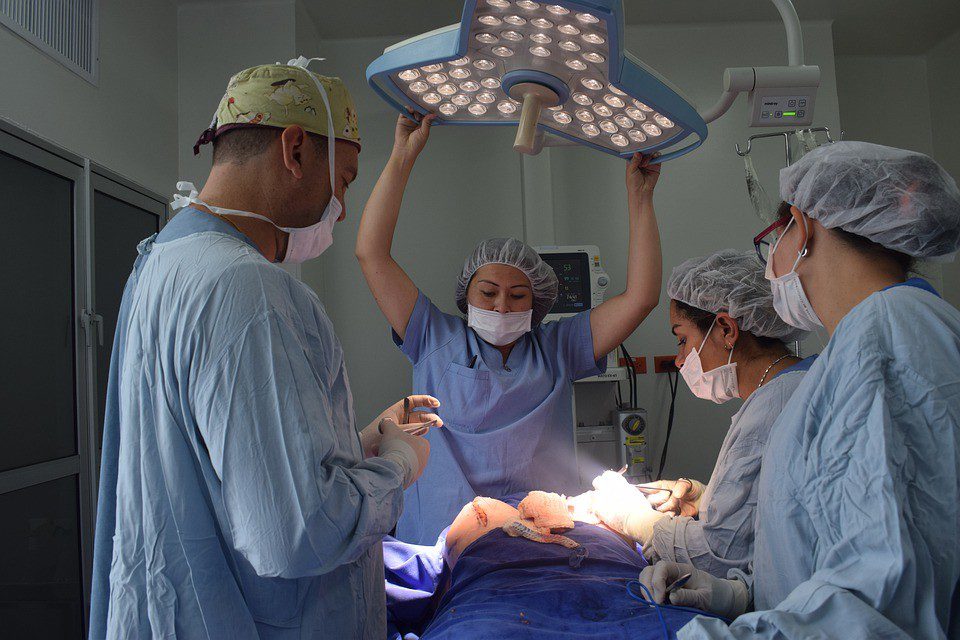
Have you ever looked in the mirror and thought, “Hmm, maybe this should be surgically removed!” Or it’s that condition that you’ve had ever since you were little and your doctor has adamantly wanted it to be taken care of surgically, but time and the costs have been an issue? Well, you’re not alone. Many people are faced with situations at some point in life that demand surgical treatment. Whatever your reasons are, you have no reason to be afraid since, unlike in years past, technology has played a huge role in improving surgical procedures. Did you know that some procedures only require a few millimeters of incisions? Well, surgical procedures have quite improved over the years, and we have advancements in medical technology to thank for that.
Now, before going under the knife, there is, of course, the overwhelming fear and anxiety that comes with it. It’s just not easy to trust someone with your life as they aim to scalpel on your belly, for instance! But it just has to happen. It’s at that time when a million questions will be flowing in your vulnerable mind. They say that the only way to face your fear is to outrightly expose yourself to the triggers. So, to help you face your fears while under the skillful hands of a surgeon, here are the questions to ask yourself before going under the knife.
Q1. What do you Aim to Achieve After the Surgery?
Now, whether it’s a cosmetic procedure or a medical procedure that aims at improving your overall health, it’s important to ensure that you know what the desired end results will be. After any given type of surgery, you’ll be required to undergo a healing period that will usually be characterized by therapy sessions or time to time medical checkups. This shouldn’t in any way worry you. Actually, knowing that you’re in the better hands of medical specialists should sometimes be all that it takes to comfort you.
For instance, if you’re considering facial reconstruction using customized facial implants, discussing the desired outcomes with your surgeon beforehand will ensure you have a clear vision of the results you can expect. This open communication will also allow your surgeon to tailor the procedure to your specific needs and preferences, providing you with the best possible outcome.
Nonetheless, it’s more about your needs and less about what the procedure can do. It’s what it can do for you! According to Dr. Navdeep Kaur from Vivaa, each and every patient has their own unique medical needs and concerns, and these should always be the basis in creating a personalized care plan for each individual. This care plan should involve pre-surgery, during surgery, and post-surgical treatment where necessary. Before you schedule a surgical consultation, you want to be sure that you know about your overall goals and what you’re looking to achieve by undergoing surgery. Many surgical experts assert that this is the first step towards establishing a meaningful doctor-patient communication towards your treatment path.
A south carolina tubal ligation reversal doctor can help you to better understand the outcome of your procedure, for example, if you are considering a tubal ligation reversal. Similarly, a cosmetic surgeon can discuss the expected results with you if you are considering rhinoplasty or breast augmentation. Understanding your goals and what the procedure can realistically achieve will help you to make an informed decision about going under the knife.
Q2. Are You Aware of the Implications and the Risks Involved?
Depending on the procedure you’re seeking there could be some risks involved. These range from mild effects such as pain to severe issues like wound infection and bleeding. And if you come to think about it, it’s the sole reason most people are afraid of undergoing surgery. Nonetheless, modern medical technology has ensured that surgical procedures are safer and quicker. The efficiency in modern surgical procedures surpasses those practiced in years past. But then again, you cannot rule out the possibility of risks, side effects, and complications. Here is an outline of the most common complications in surgical procedures:
- Bleeding
- Risks involving anesthesia
- Infections
- Bruising
- Scaring
- Poor recovery
Patients who are interested in plastic surgery or any other self-improving type of surgery, you’ll want to consult with your surgeon first to learn about your options as well as anything to do with the specific particular procedure.
Q3. Are Your Expectations Realistic?
Before you get into any type of plastic surgery, it’s important to know the kind of results to expect. The goal of any type of surgery is to improve your wellbeing, make a few changes, or restore some body functions that would have otherwise taken more time without surgery. For you to achieve the best results, it’s important to establish the best relationship with your doctors while at the same time, having a realistic goal. Your surgery is indeed meant to improve your overall well being, but then again, your full participation and cooperation will also go a long way towards a speedy recovery.
Q4. Are You Willing to Try other Options?
Most people are opting for plastic surgery because of the widespread advertisements promising a magical fix. As earlier mentioned, you want to approach surgery with an open mind and with realistic and achievable goals. Additionally, surgery may not be the only option to improve your condition. There is a wide range of other procedures, non-incisive, and non-invasive treatments that could count as an alternative to give you the desired improvements.

These are all the more reasons to consult with your doctor before surgery. You also need to ask your doctor if there are other forms of treatment for your particular problem. For instance, leading a healthier lifestyle will by far help to reduce the early signs of aging. So before opting for plastic surgery, why not try eating healthy and living a healthier lifestyle towards achieving what surgery will provide on a short time basis. Remember, in most situations, surgery should be a last resort after trying all other avenues without results.
Q5. Do you Qualify for Surgery?
Its cliché to say that you need to be in your best physical health condition, but for you to qualify for any kind of surgery, your doctor has to give the green light. Your physical health is of the utmost importance when undergoing any type of surgical procedure. The target area should be free of major medical conditions that may jeopardize the surgery or the healing process. Additionally, you also need to give up some habits pre-surgery and post-surgery. These include smoking and drinking alcohol. Before undergoing surgery, it’s crucial to conduct research on that particular procedure and while at it, ensure that you pick a qualified and experienced medical practitioner.
A south carolina tubal ligation reversal doctor can help you to better understand the outcome of your procedure, for example, if you are considering a tubal ligation reversal. Similarly, a cosmetic surgeon can discuss the expected results with you if you are considering rhinoplasty or breast augmentation. Understanding your goals and what the procedure can realistically achieve will help you to make an informed decision about going under the knife.Even after all these questions linger in your mind, your first consultation is enough to determine whether an operation is necessary. During your first consultation, do not shy away from asking your doctor questions related to the operation. Remember, an informed patient is a healthier patient.













